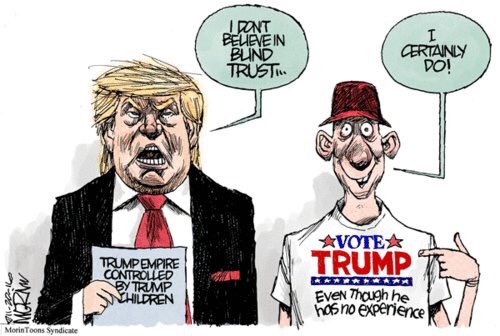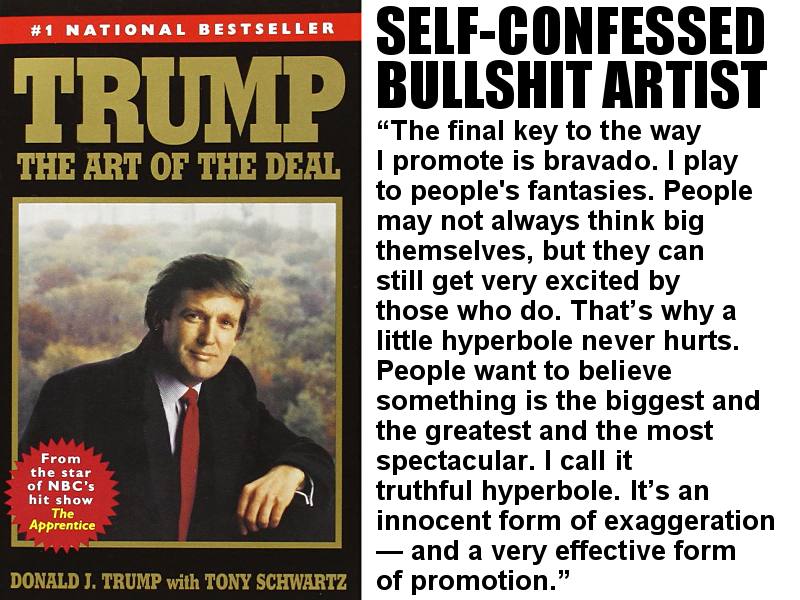



Hello 'Pussy' it's Mrs. Piggle-Wiggle and Pippi Longstocking:
You openly sided with the Saudis, first on Twitter, then again at a news conference. You called Qatar a “funder of terrorism at a very high level” just as the State Department was questioning whether the Saudis were using the terrorism charge to cover for “long-simmering grievances” between the Arab nations.


Happy birthday dear Alison Bard Burnett!

I'm one of her devoted fans.
She is a marvellous storyteller like her sisters Betty MacDonald and Mary Bard.
My favourite scene is when Alison Bard Burnett and Wolfgang Hampel are visiting the house in Laurelhurst.
It was the first time after 70 years that Alison saw the house again she was born.
Alison's memories are unique and priceless and so are Wolfgang's questions and remarks.
Alison Bard Burnett and Wolfgang Hampel are the best Betty MacDonald fan club team in history!
There will be a new documentary entitled ' Alison Bard Burnett and Wolfgang Hampel in Seattle ' with never published before scenes.
It's such a wonderful experience that we can see these unforgettable moments.
Have a nice Monday,
Alexander
you can join
Betty MacDonald fan club
Betty MacDonald Society
Vita Magica
Eurovision Song Contest Fan Club
on Facebook
Vita Magica Betty MacDonald event with Wolfgang Hampel, Thomas Bödigheimer and Friedrich von Hoheneichen
Vita Magica
Betty MacDonald
Betty MacDonald fan club
Betty MacDonald fan club on Facebook
Betty MacDonald forum
Wolfgang Hampel - Wikipedia ( English )
Wolfgang Hampel - Wikipedia ( English ) - The Egg and I
Wolfgang Hampel - Wikipedia ( Polski)
Wolfgang Hampel - Wikipedia ( German )
Wolfgang Hampel - LinkFang ( German ) Wolfgang Hampel - Academic ( German )
Wolfgang Hampel - cyclopaedia.net ( German )
Wolfgang Hampel - DBpedia ( English / German )
Wolfgang Hampel - people check ( English )
Wolfgang Hampel - Memim ( English )
Vashon Island - Wikipedia ( German )
Wolfgang Hampel - Monica Sone - Wikipedia ( English )
Wolfgang Hampel - Ma and Pa Kettle - Wikipedia ( English )
Wolfgang Hampel - Ma and Pa Kettle - Wikipedia ( French )
Wolfgang Hampel - Mrs. Piggle-Wiggle - Wikipedia ( English)
Wolfgang Hampel in Florida State University
Betty MacDonald fan club founder Wolfgang Hampel
Betty MacDonald fan club interviews on CD/DVD
Betty MacDonald fan club items
Betty MacDonald fan club items - comments
Betty MacDonald fan club - The Stove and I
Betty MacDonald fan club groups
Betty MacDonald fan club organizer Linde Lund
Betty MacDonald fan club organizer Greta Larson
Where Trump Zigs, Tillerson Zags, Putting Him at Odds With White House

WASHINGTON — When Rex W. Tillerson,
the former chief executive of Exxon Mobil, arrived in Washington five
months ago to become the secretary of state, his boosters said he
brought two valuable assets to a job that had usually gone to someone
steeped in government and diplomacy: a long history managing a global
company, and deep relationships from the Middle East to Russia that
enabled him to close deals.
But his first opportunity to use that experience — as a behind-the-scenes mediator in the dispute between Qatar and Saudi Arabia — has put Mr. Tillerson in exactly the place a secretary of state does not want to be: in public disagreement with the president who appointed him.
Mr. Tillerson tried to position himself as an intermediary and sought for all sides to put their demands on the table. But President Trump openly sided with the Saudis, first on Twitter,
then again at a news conference. Mr. Trump called Qatar a “funder of
terrorism at a very high level” just as the State Department was
questioning whether the Saudis were using the terrorism charge to cover
for “long-simmering grievances” between the Arab nations.
Some
in the White House say that the discord in the Qatar dispute is part of
a broader struggle over who is in charge of Middle East policy — Mr.
Tillerson or Jared Kushner, the president’s son-in-law and a senior
adviser — and that the secretary of state has a tin ear about the
political realities of the Trump administration. Others say it is merely
symptomatic of a dysfunctional State Department that, under Mr.
Tillerson’s uncertain leadership, does not yet have in place the senior political appointees who make the wheels of diplomacy turn.
But
criticism from Mr. Trump’s aides is not Mr. Tillerson’s only problem.
In recent days, each of his top priorities has hit a wall. His effort to
enlist China to force North Korea to give up its nuclear and ballistic
missile programs has gone nowhere, as the president himself acknowledged last week. The Russians, angry about a congressional move to impose new sanctions, disinvited one of his top diplomats — leaving that crucial relationship at its lowest point since the Cold War.
And
in Congress, where Mr. Tillerson once found members willing to give
deference to his efforts to reorganize and shrink the State Department,
there is now anger and defiance about the extent of those plans.
In
a remarkable series of hearings this month, Senator Bob Corker,
Republican of Tennessee and the chairman of the Foreign Relations
Committee, declared Mr. Tillerson’s proposal for a 30 percent cut in the
department’s budget a “waste of time” that he would not even review,
and he expressed disbelief that the reorganization plan for the
department would not be ready until the end of the year, at the
earliest.
“It’s not that he’s a weak secretary of state or a strong one — he’s in a different category,” said Robert Kagan, a senior fellow at the Brookings Institution who is writing the second volume of his history
of American foreign policy. “I have a hard time thinking of one who has
come in with little foreign policy experience and has less interest in
surrounding himself with the people who know something about the regions
and issues that he has to deal with.”
In
fact, Mr. Tillerson’s determination to rationalize the State Department
structure, which many applaud, and his refusal to appoint under
secretaries and assistant secretaries until he has it all figured out
have created policy gridlock. Three foreign ambassadors — one from Asia
and two from Europe — said they had taken to contacting the National
Security Council because the State Department does not return their
calls or does not offer substantive answers when it does.
Mr.
Tillerson, for example, recently shut down the office of the special
representative for Afghanistan and Pakistan — whose role had been
diminished since Richard Holbrooke had the job during President Barack
Obama’s first term — and has yet to appoint an assistant secretary of
state for South and Central Asian affairs, at a time when the Taliban’s
return and Pakistan’s instability are major concerns.
When
he attended a series of recent meetings on Afghanistan, Mr. Tillerson
was accompanied by only his chief of staff, Margaret Peterlin, who is a
former United States Patent and Trademark official and technology
executive with no diplomatic experience.
There
is also no one in line for the Asia policy job, just when there is talk
about whether the North Korea crisis will be defused by negotiation or
steam toward conflict.
Through
it all, Mr. Tillerson, a Texas native and an engineer by training, has
remained publicly stoic, proceeding at his own pace, though colleagues
from his Exxon days say they have seen little evidence he is finding
much joy in the job.
Running one of the world’s largest oil
and gas companies, Mr. Tillerson had complete authority. At the State
Department, he finds himself negotiating with other power centers — from
a White House with conflicting factions and priorities to the Defense
Department — and managing a bureaucracy that largely cringes at the
president’s approach to the world. Some senior diplomats have resigned
over the administration’s policies, and many have signed letters of
protest.
Accustomed
as he is to having the final word, it was clearly jarring for Mr.
Tillerson, during a recent trip to Australia and New Zealand, to be out
of sync with Mr. Trump’s tweets on the Qatar crisis. “I’m not involved
in how the president constructs his tweets, when he tweets, why he
tweets, what he tweets,” the secretary said.
Foreign governments do not know whether to believe Mr. Tillerson’s reassuring words
or Mr. Trump’s incendiary statements. But there is also evidence of
more substantive disagreements between Mr. Tillerson and the small cadre
of White House officials who have taken a strong interest in setting
Middle East policy, starting with Mr. Kushner.
In
dealing with the Saudi leadership, which Mr. Tillerson knows well, Mr.
Kushner argued for cultivating Prince Mohammed bin Salman, the
31-year-old son of King Salman, who was emerging as a rival to the crown
prince at the time, Mohammed bin Nayef.
Mr.
Tillerson warned against showing favoritism in the succession, and
viewed the treatment of the young Prince Mohammed during a White House
trip as too lavish. Mr. Kushner, it turned out, was betting on the right
horse: The son displaced Mohammed bin Nayef last week as the crown prince, and will probably be the leader of Saudi Arabia for decades to come.
The
rift widened when Mr. Kushner and Stephen K. Bannon, Mr. Trump’s chief
strategist, argued for backing Saudi Arabia, Egypt and other countries
that had imposed an embargo on Qatar, ostensibly to punish it for
financing the Muslim Brotherhood and other extremist groups. Mr.
Tillerson, who had relationships in Qatar dating from his time as the
chief executive of Exxon Mobil, argued for the United States to take a
neutral position in the dispute in order to keep the Gulf Cooperation
Council, a loose association of mostly Sunni Arab nations, together.
But
the secretary’s efforts to play peacemaker were undercut by Mr. Trump’s
statement. When the administration pressed Saudi Arabia and Egypt to
draw up a list of demands for Qatar, a senior official said, Mr.
Tillerson asked Qatar to do the same. Officials at the White House were
nonplused.
Mr.
Tillerson does have his supporters, such as James Jay Carafano, a vice
president of the Heritage Foundation, a conservative think tank.
“Frankly, the biggest criticisms really amount to he works for Trump and
he doesn’t act like Kerry or Clinton,” he said. “He doesn’t like
pandering to the media, and he is perplexed by Trump’s tweeting. That’s
pretty vapid stuff.”
But usually by this point in their tenure, secretaries of state have made their focus clear. Hillary Clinton focused on the empowerment of women; John Kerry focused on a nuclear deal with Iran and a failed effort at Middle East peace; and Condoleezza Rice
made the spread of American democracy the theme of her term. If Mr.
Tillerson has a larger vision beyond shrinking and reorganizing the
State Department, he has offered no hint.
His rough beginning has led to a quiet effort by senior Republican officials from past administrations — including Henry A. Kissinger,
Ms. Rice and Robert M. Gates, a former defense secretary — to reach out
with advice. He has been told to lean more on the experience of career
professionals, to become more confident in taking initiatives separate
from a White House preoccupied by investigations and, above all, to move
more quickly.
The closest Mr. Tillerson has come to articulating a strategic vision for his tenure came during a session with department employees
in early May. In a freewheeling talk, operating without notes, Mr.
Tillerson ran through each region of the world where the State
Department is active — including the Middle East, Europe and Asia,
touching on China and North Korea — asking how to “advance our interests
in Afghanistan” and how to keep terrorism from spreading through North
and Central Africa.
“Let’s
talk first about my view of how you translate ‘America First’ into our
foreign policy,” he said, and then went on to describe an era in which
American economic and security interests would be paramount.
To
many in the department, Mr. Tillerson’s speech was notable for what it
did not include. Over the previous five presidencies, questions of how
to use American influence to advance the rights of minorities around the
world, to negotiate a new arms control deal or to set norms of behavior
for nations that attack each other with cyberweapons had become the
focus of American diplomacy. Not anymore.
And
when Mr. Tillerson spoke of human rights, it was to caution that while
the United States always treasures “freedom, human dignity, the way
people are treated,” those values would often not be reflected in
policies. Values, he warned, cannot be allowed to “create obstacles to
our ability to advance our national security interests, our economic
interests.”
The
issue became pointed during a congressional hearing this month, when
Mr. Tillerson conceded that during dealings with Russia’s leaders, he
had never discussed the torture and murder of gay men in Chechnya. “Those are on our pending list,” he said.
When
asked to specifically condemn such targeted attacks in Russia, he said,
“That is our position globally.” And when pressed further, he snapped,
“Last time I checked, Russia is part of the globe.”
To
many State Department employees, Mr. Tillerson is something of a
phantom who says little in staff meetings, rarely leaves his
seventh-floor office — where he is surrounded by Ms. Peterlin and a
small group of protective aides — and does not solicit their views.
Since
he became secretary, the torrent of words that once flowed from the
State Department in daily briefings, speeches and statements — helping
to refine and set policy in embassies around the world — has slowed to a
trickle. Mr. Tillerson has rarely held “background” briefings with
reporters to explain his positions.
His
reticence has become so well known that even the president gently
ribbed him about it when the two were in Saudi Arabia, volunteering the
secretary to conduct a briefing where no American reporters were
present.
Mr.
Tillerson’s aides say his approach is as refreshing as the new décor in
the State Department’s seventh-floor offices, where the art and colors
of the American West now hang, rather than paintings of long-dead
diplomats.
“He
thinks like a cowboy,” Mr. Tillerson’s strategic adviser, R. C.
Hammond, said recently. Likening words to ammunition, Mr. Hammond added,
“You carry a revolver with only six shots, and you don’t waste your
bullets.”
